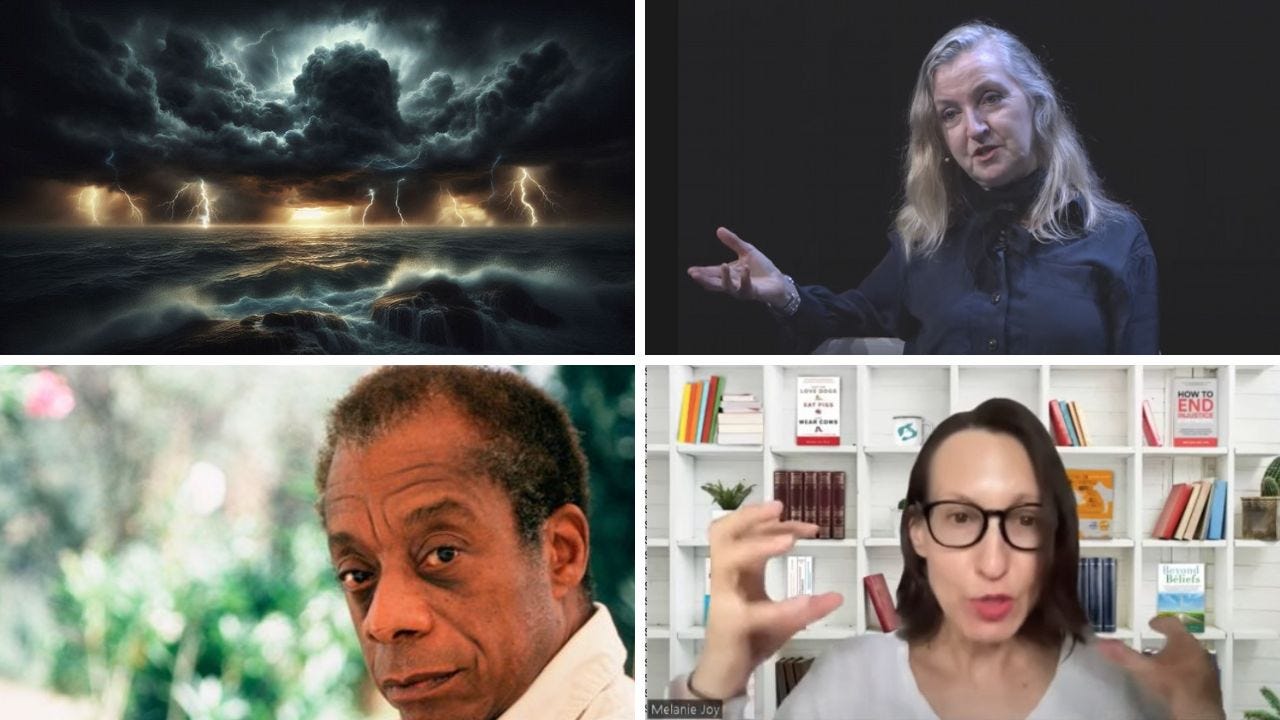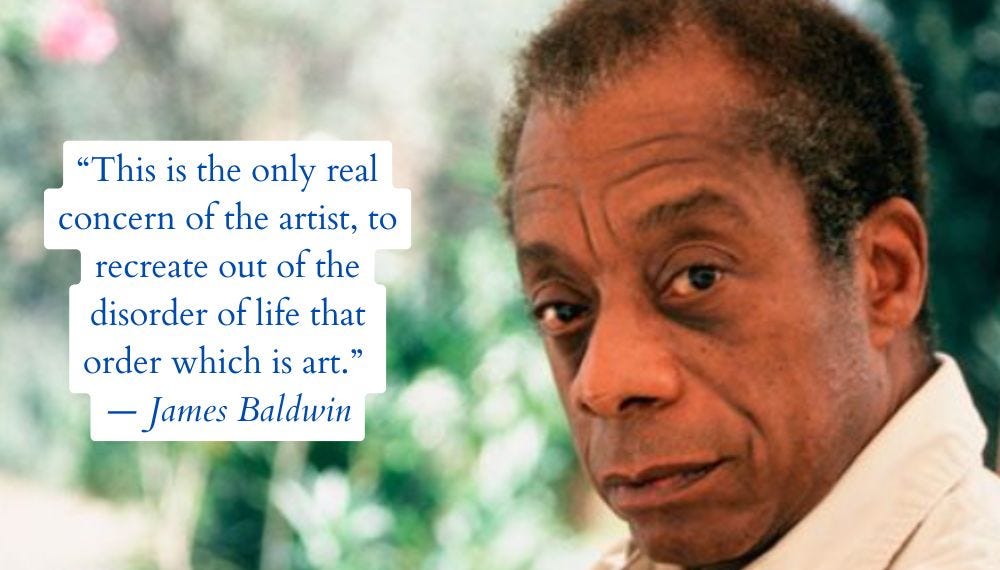“This is precisely the time when artists go to work. There is no time for despair, no place for self-pity, no need for silence, no room for fear. We speak, we write, we do language. That is how civilizations heal.“ - Toni Morrison
Actor and writer Amber Tamblyn reads comments by journalist Rebecca Solnit, followed by Solnit talking about activism for social change and not giving up.
Psychologist Melanie Joy talks about how distressing media and events can be for highly sensitive people, and how our intense emotions can turn us away from things we desire to change in the world....
In the audio: writer, director, actor Amber Tamblyn reading the words of Rebecca Solnit, from video by Tamblyn.
Solnit: "They want you to feel powerless and surrender and let them trample everything and you are not going to let them.
You are not giving up, and neither am I.
The fact that we cannot save everything does not mean we cannot save anything and everything we can save is worth saving.
You may need to grieve or scream or take time off, but you have a role no matter what, and right now good friends and good principles are worth gathering in.
Remember what you love. Remember what loves you. Remember in this tide of hate what love is."
Read more and see link to video in Substack post of Amber Tamblyn: Time to Make Peace with the Fight - A little love letter from me to your shattering, post election. Nov 06, 2024.
Audio of Rebecca Solnit is from Climate One video interview with Ariana Brocious.
...
Audio: Toni Morrison, from Instagram reel by Shonda Rhimes.
Toni Morrison wrote “This is precisely the time when artists go to work. There is no time for despair, no place for self-pity, no need for silence, no room for fear. We speak, we write, we do language. That is how civilizations heal.“ -
From post No Place for Self-Pity, No Room for Fear: Toni Morrison on the Artist’s Task in Troubled Times By Maria Popova.
“This is the only real concern of the artist, to recreate out of the disorder of life that order which is art.” — James Baldwin
(From Medium post "Adversity is the Key to Evolution for Writers: James Baldwin’s Wisdom for Surviving Chaos: By Gabriella H.)
...
Dr Melanie Joy is "a Harvard-educated psychologist specializing in relationships, communication, and the psychology of social change."
Her segment in this Creative Mind Audio is an excerpt from the episode “How to Stay Emotionally and Psychologically Safe in the Midst of Distressing Media with Dr Melanie Joy” of the HSP and Neurodivergent Podcast on the Sensitive Empowerment site of Julie Bjelland, LMFT - where you can find many more of her articles, books, courses, Sensitive Community and other resources.
Video excerpt from the podcast:
» Learn about Courses for Sensitive and Neurodivergent People by therapist Julie Bjelland, LMFT, including "Brain-Training Techniques to Reduce Anxiety & Overwhelming Emotions."
⏩ Free class by therapist Julie Bjelland: High Sensitivity and Anxiety. "Why is anxiety so high in highly sensitive people? We will explore this, learn about the trait of high sensitivity and how it might make us more susceptible, and share tools and resources that will help you reduce anxiety naturally and thrive."
~~~~
Dr Melanie Joy comments: "And it's also those of us who are most sensitive who are in some ways most likely to turn away because it's so painful for us. We're more easily dysregulated."
What is nervous system dysregulation?
Dr Cathleen King, DPT, is a "doctor of physical therapy who teaches neuroscience principles, and is a mind-body practitioner." She writes:
"Ever feel like your body and mind are constantly on edge, even when there’s no clear reason?
“Maybe you find yourself tense, restless, or easily overwhelmed, or perhaps you’re dealing with physical symptoms that seem tied to stress, but you can’t quite figure out the cause.
"It could be that your nervous system is sending out signals that it’s out of balance or what experts often call a dysregulated nervous system.
"A dysregulated nervous system can turn routine experiences into sources of stress. The things you used to handle easily may feel intimidating or exhausting, and tasks that once brought joy might feel overwhelming.
"This state can leave you feeling anxious and jumpy like you’re always bracing yourself for something—even if nothing specific is wrong."
From her article Understanding A Dysregulated Nervous System: The Symptoms and Signs.
» Also see related post wit Dr Cathleen King: How to feel safe in stress and trauma healing, and the Cell Danger Response.
📖 Free ebook by Dr. Cathleen King: How Healing Happens - a 127 page guide on "brain retraining and nervous system somatic healing."
~~~~
Stuck in our comfort zone and insecurities
Topics above in this Substack article of mine include anxiety, and feeling safe or unsafe - both affect how we engage with the world, with other people, and work to change social issues.
Dr Mihaela Ivan Holtz of Creative Minds Psychotherapy helps creative people in TV/Film, performing and fine arts, and writes about the emotional and creative pleasures - and challenges - of their inner life as artists.
She writes:
“Self-belief injuries, often rooted in early experiences, can trigger self-doubt decades after the initial relational trauma. If this is true for you, you may find that your belief in yourself is a weak flame flickering, at the mercy of any life’s winds.
Keep in mind that it’s normal to feel some self doubts or insecurities. That’s just part of being a human in the endless process of evolving.
Instead, a self-belief injury feels more like a constant preoccupation with your insecurities.
It can trap you in your comfort zone and cause you to avoid opportunities for growth.
You may find yourself paralyzed, afraid of taking on new challenges, and unable to pursue our goals or dreams.”
» Read more in article Rediscover Your Inner Gifts: Reconnect to with Your Belief in Yourself by Mihaela Ivan Holtz, Psy.D., LMFT | EMDR, Trauma
Dr Holtz notes more in another article how important emotional health is for living in challenging time:
"In the wake of all the current upheavals...many creative people are going through challenging but necessary transitions and changes right now.
"This is a time when creative professionals need to be able to open and expand to new options.
“Yet, that’s very challenging when one is also coping with old, unhealed emotional wounds.
"Old wounds erode trust in your own creative abilities, or your sense of agency. They disconnect you from your authentic core self.
"When a creative person doesn’t heal their past emotional conflicts and trauma, they...feel stuck or even like they cannot cope with the demands of their art, their career, or their personal life.
"Unhealed past emotional trauma holds you back from meeting the challenges of today."
From her article When a Creative Heals and Transforms, the World Heals and Transforms Too.
~~~~~~
















